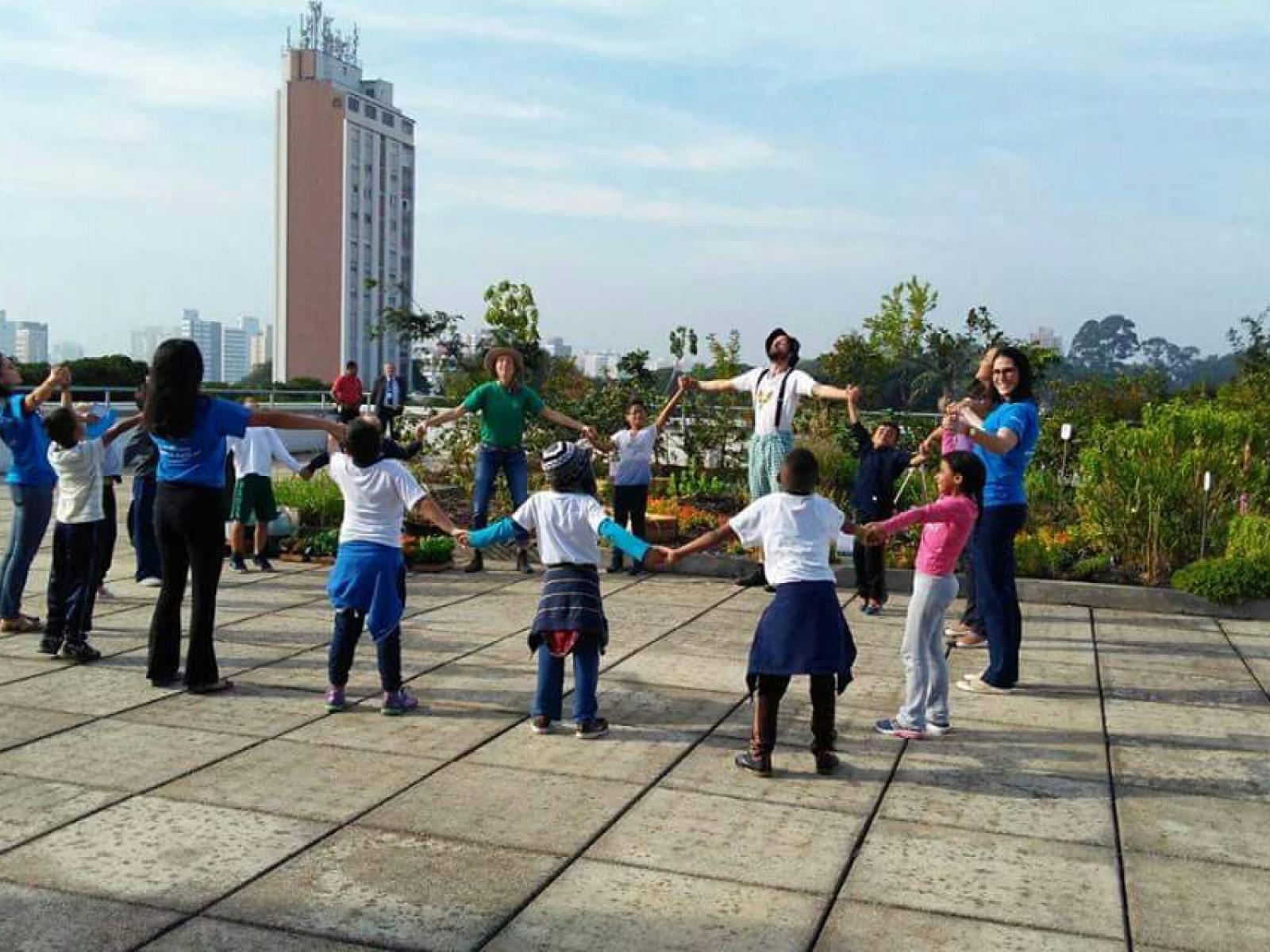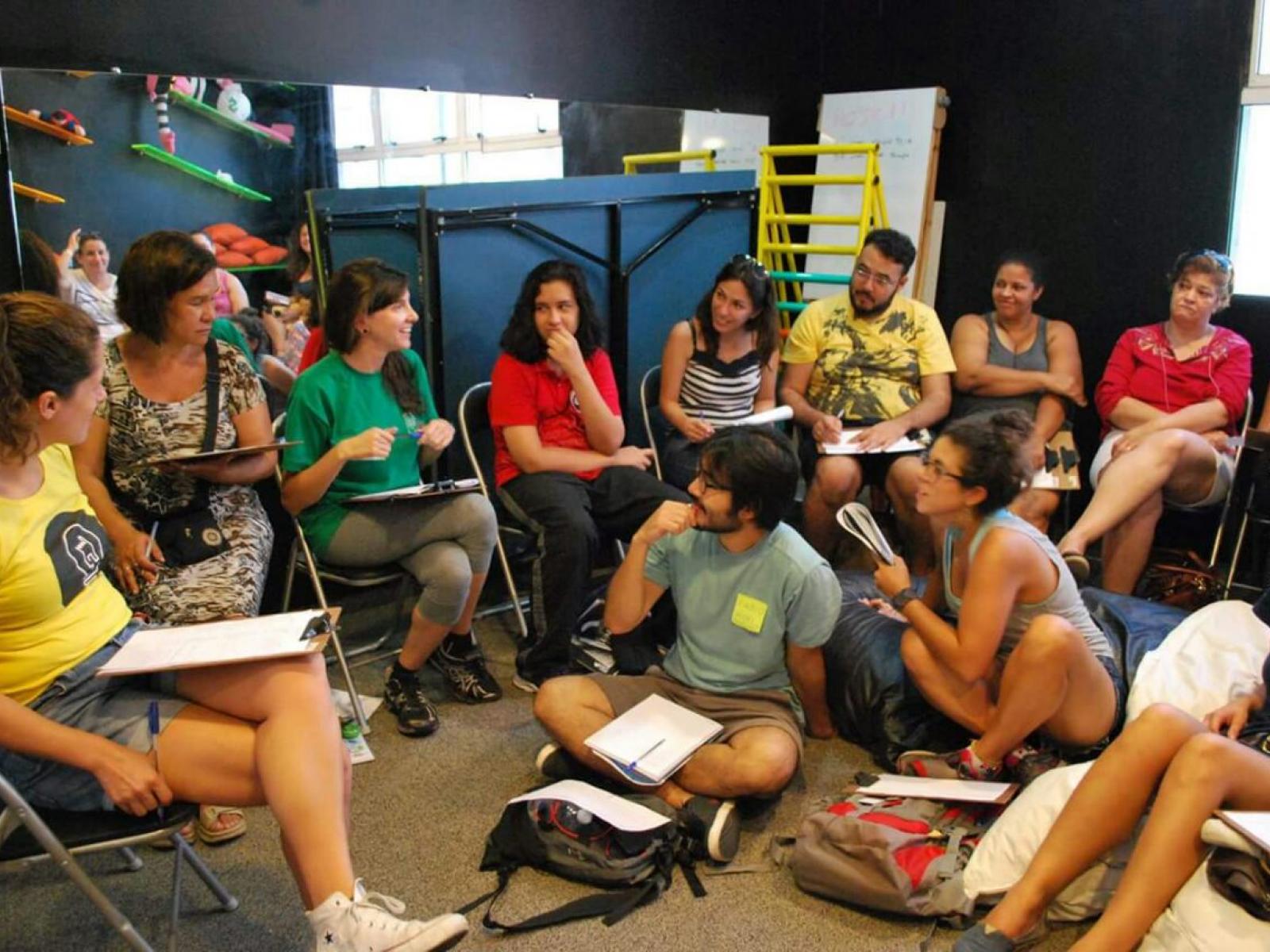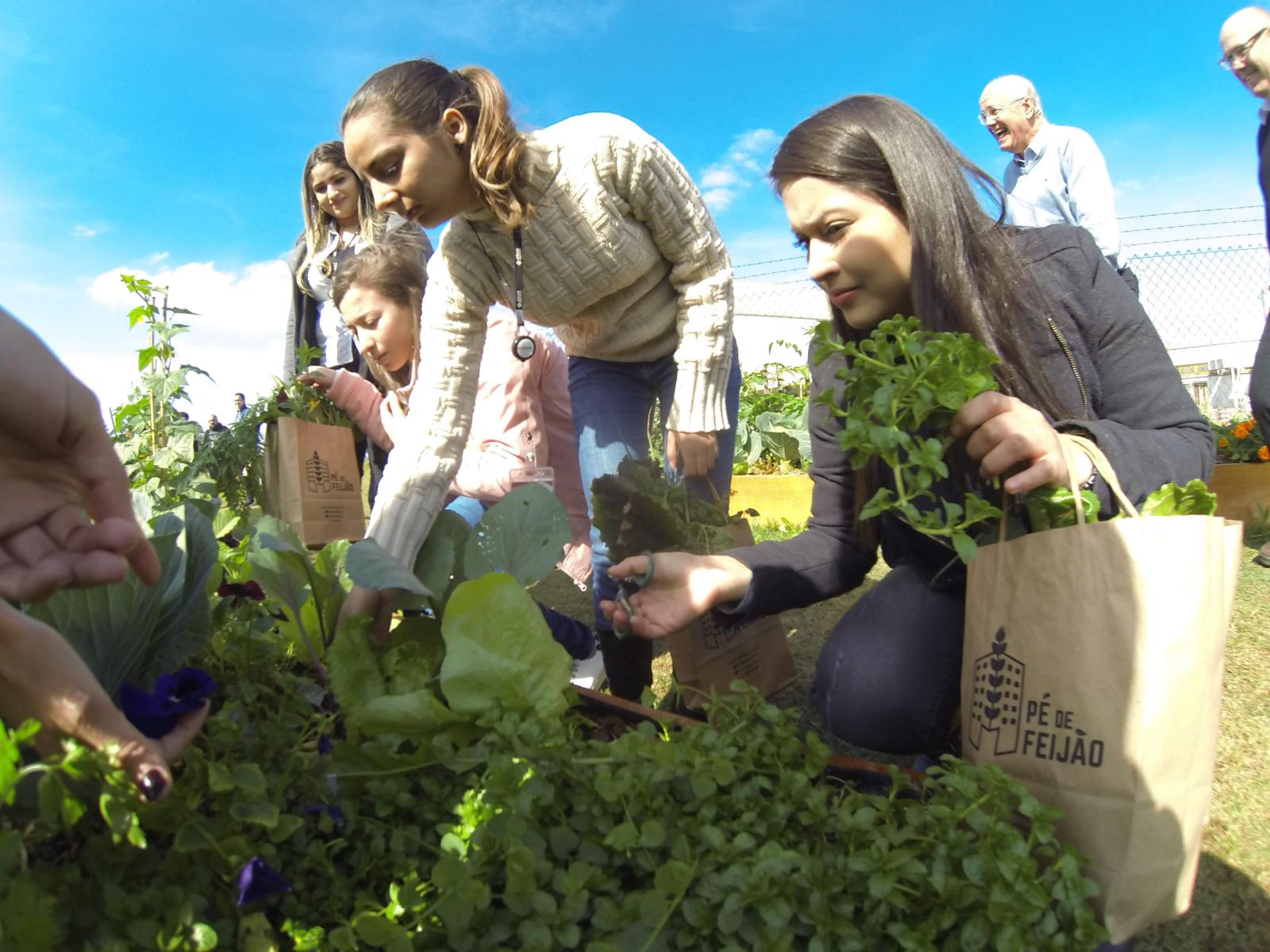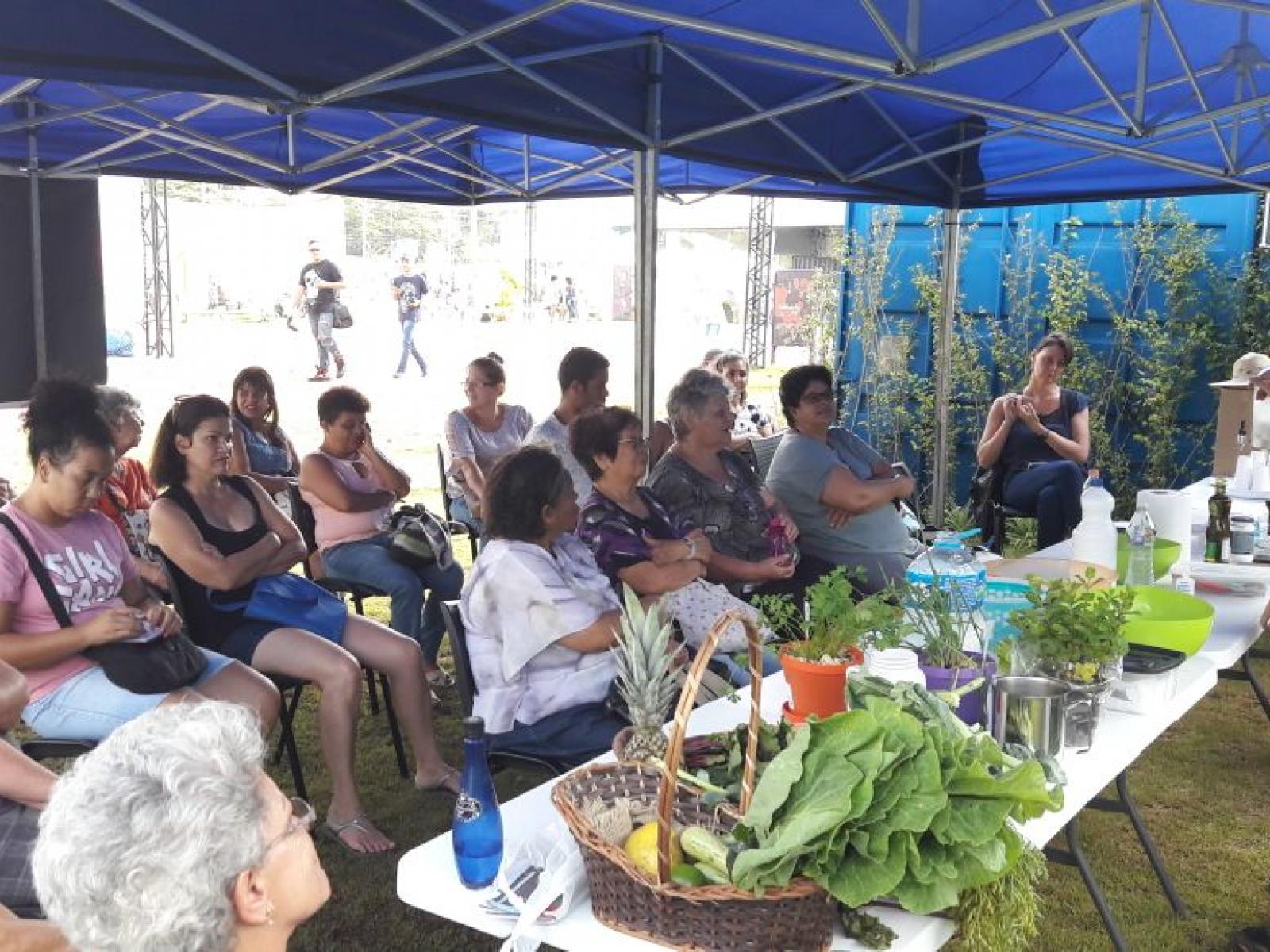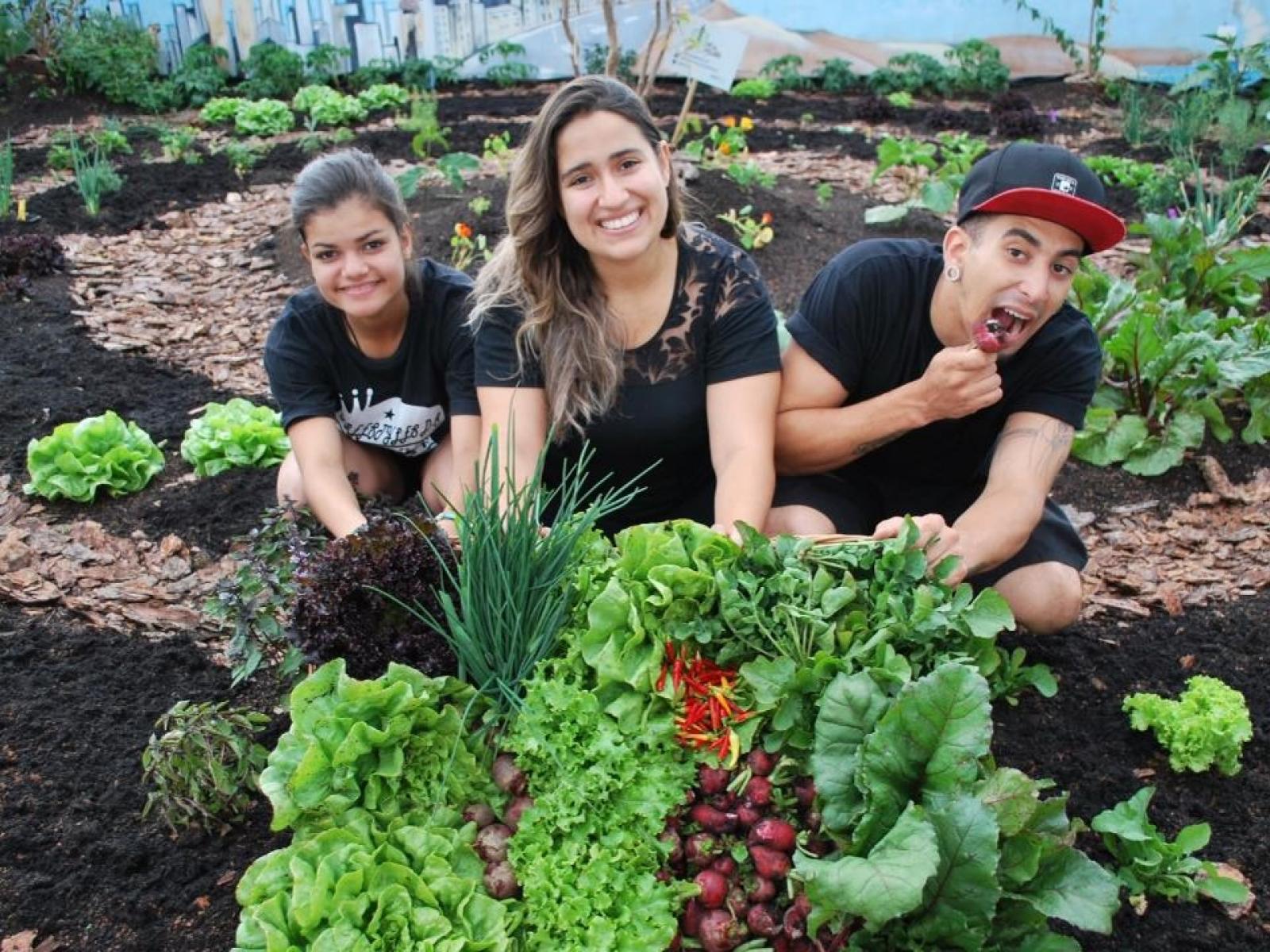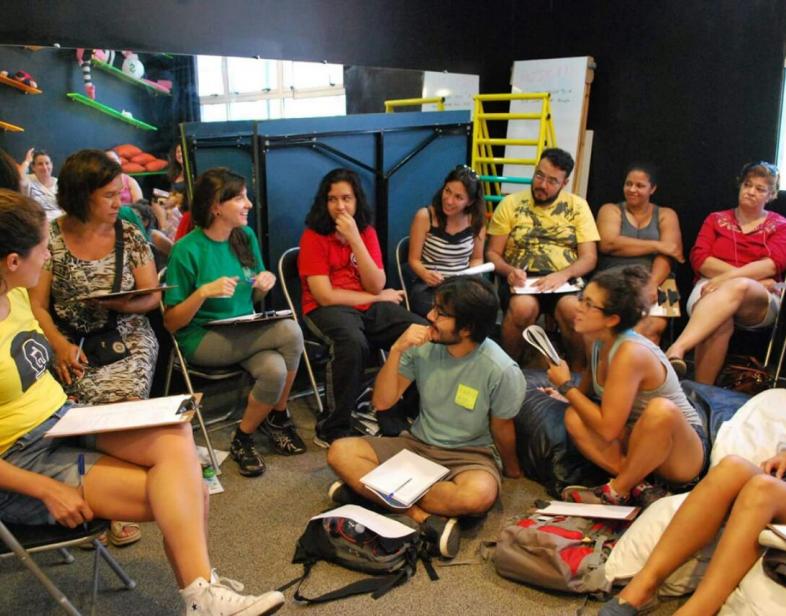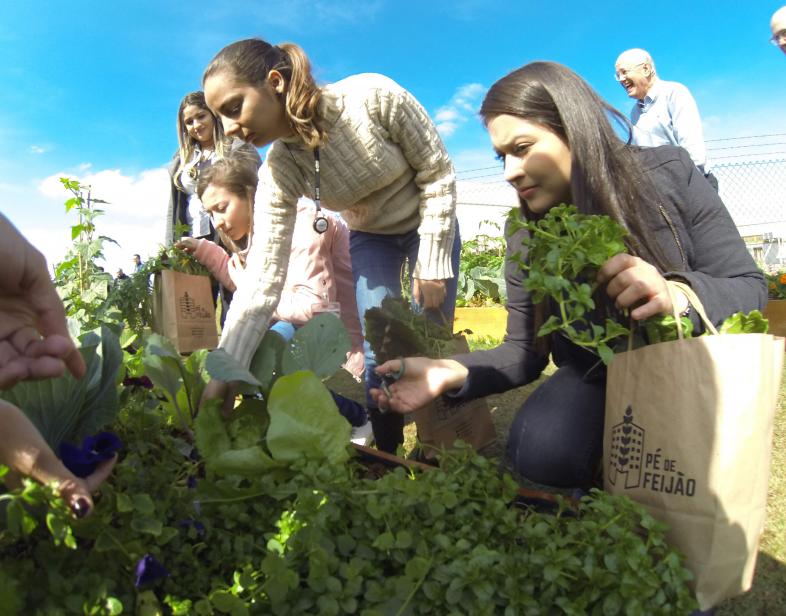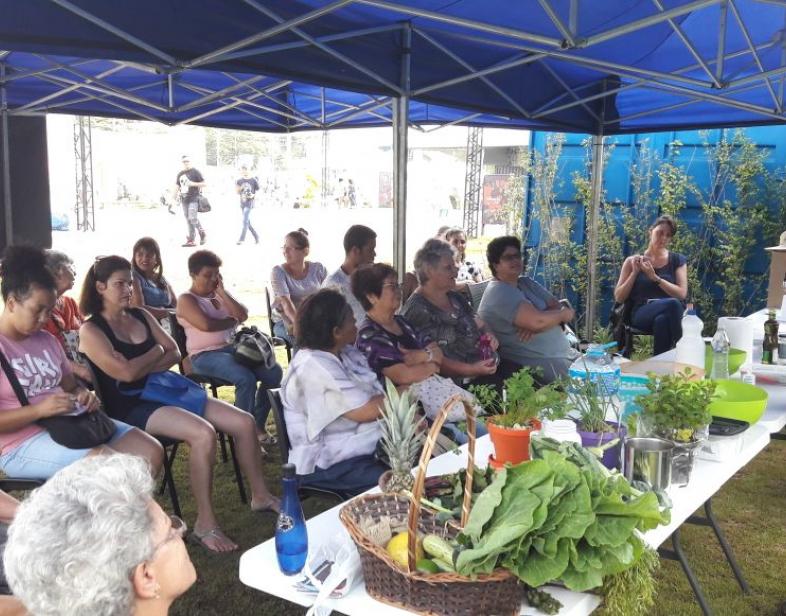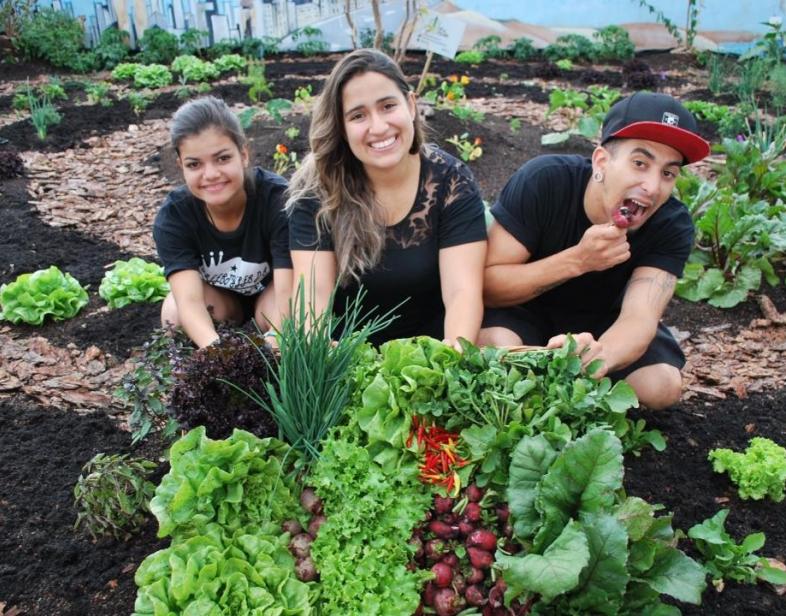An Overview Of Our Solution
Our mission as an impact business is to transform people's relationships with food by providing information and training that allows for better choices, using edible urban gardens as tool. We create green spaces in Sao Paulo, Brazil to reconnect people with the food cycle and offer programs that motivate behavior change to eat healthier, reduce waste, compost organic waste and consume more responsibly. We use the gardens to engage people into growing so they can develop positive affective relationship with fruits, vegetables and greens. Our key partners are companies seeking health and wellness programs and community centers. Through them we reach various audiences, from low income population to top corporate leaders, transforming individual and collective awareness about food so that their choices result in happier and healthier lives and environments.
- Population Impacted: 25,300 people: 4,700 directly and 20,600 indirect
- Continent: South America
Context Analysis
Data from Brazilian Ministry of Health:
•54% of the adult population in Brazil is overweight; obesity increased from 11.8% in 2006 to 18.9% in 2017.
•Those are major determinant of chronic noncommunicable diseases such as diabetes, hypertension, & cardiovascular disease, such as stroke. CND are responsible for more than 72% of the causes of death in Brazil.
•Only 35.2% consume fruits and vegetables regularly - (min. 5 days per week) - and 24.4% of those consume the amount recommended by WHO. 78% of Brazilians do NOT identify that unhealthy diets result in several deaths.
The Food Guide for the Brazilian Population, a government guideline based on WHO, highlights: information, supply, cost, culinary skills, time & advertising as the main obstacles to healthy eating habits.
•The WHO recommends min 9m2 of green space per inhabitant in cities. São Paulo is has a 3.5m2 rate.
•26 million tons of food are wasted per year in Brazil. That could feed 35 million people. (FAO, 2013)
Describe the technical solution you wanted the target audience to adopt
The technical solution we propose is to use vacant spaces in the city for edible gardens to provide food information and training to citizens. We mainly incorporate social agricultural technologies applied in the design, implementation and care of edible gardens, such as agroecology in which pesticides are not used. The knowledge associated with these agricultural techniques is communicated in all workshops to inspire people to do it on their own. We care about the adherence and sense of belonging of the communities that host the garden to make it a sustainable, thriving initiative and independent from us. We also use organic composting technologies in complementary to vegetable solutions that strengthen people's experience with the complete food cycle and demonstrate and inspire the environmental benefits of responsible waste management. Social technologies are central to our current model as they are based on human interaction and disseminated to participants throughout the process.
Type of intervention
Describe your behavioral intervention
Behaviors we are working to change:
Increase the intake of fruits, leafy greens & vegetables according to WHO recommendations
Increase consumption of home cooked meals
Increase the use of the whole ingredient, such as stems, peel, leaves & other non-used parts of fruits & vegetables, avoiding food waste
Reduce the intake of added sugar, saturated fat & salt from processed food considering WHO recommendations
Start/expand growing edible plants at home
Start domestic/industrial composting to avoid organic waste being taken to the landfills unnecessarily
Start/increase buying fruits, vegetables and leafy greens mostly organic, & purchased locally, in order to strength local production
Learn how to read labels of processed / packaged food, in order to reduce the consumption of those
Improve eating behaviors, such as reducing negative beliefs related to the diet culture & increasing self-esteem & self care
We ensure adoption through farm-based programs focused on:
Information & awareness on the food cycle: growing, sourcing & production, what labels of processed food mean & how ingredients & habits affect our health
Training on how to grow food, cook healthy meals using the most from the produce & how to make healthier choices when buying food; also, on how to compost waste and use it in the growing cycle.
Our impact measurement is more qualitative than quantitative – we use questionnaires & videos where participants explain their behavior changes.
As needed, please explain the type of intervention in more detail
EMOTIONAL APPEALS
New gardens attract people to positive hands-on experiences that develop a sense of empowerment, self-care and satisfaction around healthier eating habits. We also use multisensorial activities and the emotional connection to recipes.
SOCIAL INCENTIVES
Our activities and gardens are in organizations where participants influence one another, and their families. They’re also stimulated to share positive experiences and learnings in social networks, motivating others to change.
CHOICE ARCHITECTURE
Growing real food on vacant spaces demonstrate it can be done anywhere at organizations, households and public spaces. By training people on how to read labels we also enable more informed decisions for healthier choices.
Describe your implementation
1.Our programs bridge the information gap on the effects of food on health as well as skills gap through education and training that suit the daily life. We also address environmental issues by increasing green area per inhabitant, reducing food waste through behavior change & composting solutions, & closing the food cycle in organizations.
We build urban gardens for organizations & help them maintain it as part of a health and wellness program where participants engage in workshops (usually 1 or 2 per month, for 6 months) focused on food, eating habits, responsible consumption and management of organic/food waste. Workshops are hands-on & interactive experiences, such as learning how to build edible gardens for small spaces & domestic composting, reading labels, choosing fruits & vegetables, adequate storage, food chain in Brazil, chronic diseases, diets myths and trends, medicinal teas, unconventional edible plants, agrobiodiversity.
2.We follow up on the adoption of change through questionnaires, testimonial in videos, audios, social media messages during, shortly after the workshops and in new activities.
3.Desire of decision-makers in the organization for a garden and/or health program are good enablers; also budget; space, water and sun for an educational garden; well-identified challenges; an empowered implementation leader.
4.Communication skills are key, also alignment with organization hosting the program on challenges and expected results; engagement of teams in the implementation and involvement of participants; quality of experience, and methodology.
5. Our main obstacle in the beginning was to engage people in the workshops. The solution was improving communication with the community, partnering with local stakeholders and more integration with the NGO hosting the program. In our new programs we establish solid partnership local organization with influence in that community to ensure they will implement a local engagement strategy.
External connections
Our clients because they believe the program leads to behavioral change based on our results so far.
Sample: Barilla, Serasa Experian, SESCs (community centers)
Other partners:
REVER (sustainability strategic consultancy), Não Conto Calorias & WellMove (nutritionists specialized in Clinical Nutrition using behavioral change approach), Ricardo Cardim (implementation of green spaces with edible gardens & native biodiversity), Império (we were looking for suppliers of organic seedlings as it was a relevant bottleneck of our operation. We met a suburban producer and began to help him to develop his business. Today we are in the final stages of new seedlings to serve us. To subsidize this development, we proposed an increase of 0.25 to 1.50 each plant.)
Morada da Floresta (suppliers of the composting system of organic waste), Yunus Social Business, Quintessa & AbeLLha (incubators and accelerators that help us leverage our growth and scale impact).
Sectors:
Food industry: dialogue to demand products with higher nutritional quality, fewer chemical and more organic ingredients.
Agriculture: we advocate the adoption of agroforestry, which favors seed variability, decentralized production, small farmers incentives, no agrochemicals use, and shorter distances between consumers and producers
Healthcare: influencing the mindset towards preventive medicine
Policy: labeling, advertising, nutritional education, waste management, local production, agroecology, pesticide reduction
Who adopted the desired behaviors and to what degree?
Cleizer, participant in full program, 2016
6 months after the start:"I don’t eat on the streets anymore, I make more vegetables, I include more fruits in my snacks, all from tips I’ve heard from you. I know these are small changes that in the long run will make a lot of difference."
18 months after the end:
"I feel more enlightened and careful about my health. Now I make my own food and lost 10kg. It was like my eyes were covered regarding my consumption habits and I’m even more aware when I buy clothes."
Tânia, participant in 3 workshops, 2018
“I’ve adopted new attitudes in my life mainly around food. The experience of the tea workshop has touched my life to understand that we have natural things in our hands. The way the knowledge was taught remade my affective memory, reminded my grandmother. I lost weight 6.5kg because I always ate very fast and today I look at what I'm eating, I pay attention. I’ve rescued my self-esteem.”
How did you impact natural resource use and greenhouse gas emissions?
15 new green areas, equivalent to 800m2
The cultivation of all vegetable gardens is agroecological and 100% without pesticides
We’ve composted approx. 90% of the organic waste from projects and use the fertilizer generated in our own activities
In our project with Barilla we are composting 100kg/day of organic waste and since the beginning 9 tons of waste was composed and the organic fertilizer was used to supply an extension of its vegetable garden in their logistic center. This project represents an economy of approx. 95 trucks/year that would be sent to the landfill
At workshops, when it is not possible to use crockery, we buy compostable items
We changed our supplier of seedlings to reduce the number of plastic bags that involved the previous seedlings
Our in natura food purchases for workshops prioritize organic foods sold by organizations that practice fairtrade with small producers
Supporting books are most often sent by email to avoid unnecessary printing
What were some of the resulting co-benefits?
Community: With new edible gardens a group of caregivers is born too. They awaken the sense of community and several meetings of growing, harvesting, and exchanges of recipes begin. Almost all workshops migrate to a social network where interactions continue
Nutrition: As overall results there is reduction in consumption of ultra processed food, improved nutrition, reduced consumption of packaging, lower resistance to try new foods, increased the intake of fruits, greens and vegetables, preference to buy organic/local.
Biodiversity: We inform about agrobiodiversity and the importance of acting as guardians of creole/native seeds. We’ve planted red corn, purple carrots. As soon as the garden is implanted becomes a refuge of macro and microfauna, attracting diverse pollinizers, earthworms and birds
Sustainability: Testimonies show how the involvement in the program impacts other choices, such as replacing the disposable cup for a mug, buying from local/small brands and thrift stores
Sustainability
We rely on market-based revenues from the provision of services to other organizations. We calculate the costs of every project based on hours of work and materials to be applied. We add a mark-up that allows us to profit from each project and we currently reinvest 100% of the profits in our activities and assets.
Return on investment
The total costs to implement our activities has been of USD 118,000 since Dec 2015.
The activities consist of design, implementation and maintenance of vegetable gardens; design and implementation of workshops and events and management/communications.
Our main results since 2015 are 4,700 people directly impacted and 20,600 indirectly (students of teachers trained, families,..). We also take into account press exposure, at no extra cost in mass media such as magazines and TV channels, that inspire other organizations and individuals to adopt our solutions aimed at behavior change. And we are often requested to provide mentoring about our methodologies to other organizations that offer similar solutions in other regions of Brazil.
How could we successfully replicate this solution elsewhere?
Our solution is a combination of an edible garden between USD 500-25,000 & an educational program around USD 6-12,000 for 6 months. This can be replicated with no need for a high level specialization. We’ve replicated it with 7 different organizations & are improving our methodologies to scale our impact at lower costs. The workshops are the main trigger for change, so the methodology can be easily replicated. The garden is an awareness tool and can be implemented in small & even indoor spaces.
The solution
Vegetable garden
Composting equipment
Maintenance & training
Preparation & execution of workshops on food, farming & composting
Impact measurement, Management & communications
Stakeholders
Organization to finance & host a garden & engage its population
Local suppliers of seedlings, soil & vegetables, fruits & greens
Needs
Training of people to lead / execute the implementation of gardens, composting & healthy food related activities based on our methodologies
